Brewery moved from London, since closed
8 Pitfield Street N1 6HA (Hackney, original site)
4 Hoxton Square N1 6NU (Hackney, second site)
Mill Race Lane, Stourbridge Industrial Estate, Stourbridge DY8 1JN (Dudley, outside London, third site)
14 Pitfield Street N1 6EY (Hackney, fourth site)
The Nurseries, Nayland Road, Great Horkesley, Colchester CO4 5HA (Essex, outside London, fifth site)
Unit Z New House Farm, Little Laver Road, Moreton, Ongar CM5 0JE (Essex, outside London, final site)
First sold beer: 1981 (as Pitfield Brewery)
Ceased brewing in London: December 1989
Ceased brewing: 1991 (as Pitfield’s Premier Brewing Co in Stourbridge)
Brewing revived in London: August 1996 (as Pitfield’s Brewery, Pitfield’s Organic Brewery from 2000)
Ceased brewing in London again: January 2006
Ceased brewing again: by August 2018 (as Dominion Brewery Co in Ongar)
Pitfield was one of the most important and influential London breweries of the modern era. Although not the first London microbrewery, it was one of the first to enjoy sustained success, with a history covering 37 years, albeit with a few lapses and relocations. It was the first microbrewery to win Champion Beer of Britain, seeded numerous other breweries including one of the most significant precursors of the current ‘craft’ scene and became the UK’s first certified organic brewery.
Southeast Londoner Rob Jones, a former clerk at the Greater London Council, began full mash homebrewing in the late 1970s when such pursuits were much rarer and less accessible than today. Some of his supplies were from the Two Brewers, a pioneering homebrew and specialist beer shop run by Brian and Liz Brett in Forest Hill (97 Dartmouth Road SE23 3HT, now a convenience store). In 1979, Brian and Liz opened a second branch at 8 Pitfield Street in Hoxton, then a neighbourhood still very much part of the old working class East End and decades away from hipster gentrification. Rob successfully applied for the post of manager, and a couple of years later persuaded the Bretts, who were impressed with the quality of his homebrew, to add an additional point of interest by financing a small brewhouse in the cellar.
This was the original Pitfield Brewery, with beers from a 6.5 hl kit made in Burton upon Trent initially sold mainly through the shop in polypins and the occasional bottle. Some accounts suggest that brewing also took place in Forest Hill initially, but Rob says this is mistaken as the only brewing facilities were in Hoxton. There were only 14 other breweries in London at the time, including a small handful of micros and brewpubs, though some of these, in contrast to Pitfield, brewed with malt extract rather than grains. The first brew was Pitfield Bitter (3.7%), followed by a stronger bitter called Hoxton Heavy (4.8%), and the local names helped build a small trade with the then-handful of London free houses and for events.
A year later, the Bretts decided to sell the shop, so Rob teamed with an old schoolfriend and fellow beer lover, Martin Kemp, and another friend, journalist Roy Dallison, raising £25,000 to buy it out and renaming it the Pitfield Beer Shop. Both shop and brewery flourished, and in 1986 the latter moved to a bigger site in a workshop behind Silverman’s Timber Yard, around the corner in Hoxton Square. The neighbourhood was once a centre of furniture making and timber yards were common locally, but this particular unit was previously used by a fetish clothing maker and needed extensive cleaning and refurbishment.
Much of the 20 hl brewhouse was recycled from the defunct Swannell’s brewery in Kings Langley, where the late Oliver Hughes, who became a major figure in Irish craft brewing as the founder of the Porterhouse, once worked as an assistant brewer. But it was customised to the team’s own designs, including an unusual fermentation system of enclosed stacked tanks, with yeast rising up from the lower tanks into the upper ones. “We think it’s unique,” Martin told Brian Glover in a contemporary issue of What’s Brewing, “a cross between the Burton Union system and Yorkshire Squares”. Yeast was sourced from Charles Wells in Bedford and, as there were no propogation facilities, it had to be renewed every few weeks, fetched by train in sterilised buckets. Staff numbers expanded with the recruitment of Andy Skene, an expatriate Canadian homebrewer and regular cusomter of the shop who remained involved throughout subsequent decades.
Hoxton Square was where Rob and Martin created an unusual 5% dark beer originally known as Pitfield Winter Special but soon renamed Dark Star after a song by the Grateful Dead. In 1986, this beer earned Pitfield CAMRA’s Best New Brewery award and in 1987 it was named supreme champion in the annual Champion Beer of Britain competition, the first winner from a microbrewery rather than an established family independent. Demand rocketed, with Pitfield beers shipped across the country. The facilities were also in demand from what we’d now call ‘cuckoo’ brewers, including the Flag cooperative led by beer educator Keith Thomas, soon to set up Brewlab at the University of Sunderland. The brewery briefly ran the Hop Pole pub, a former Truman’s pub with a distinctive tiled facade a few doors away.
As often with small and underresourced breweries, success was a double-edged sword, overstretching capacity and forcing Rob and Martin to contract out some production, with mixed results. Quality was also compromised by persistent Lactobacillus infections. In 1987, some brewing took place at historic West Midlands brewpub the Old Swan (Ma Pardoe’s) at Netherton, Dudley due to problems in London. In 1989, the brewery was given notice to vacate its Hoxton Square site due to redevelopment. At this point, a West Midlands microbrewery, Premier Ales, approached Pitfield with the suggestion of a merger, and Rob and Martin were divided on how to respond. The argument broke the partnership, with Rob taking the brewing business out of London, and Martin taking exclusive ownership of the Pitfield Beer Shop.
Premier Midland Ales was founded in 1988 by brothers Eddie and Graeme Perks, who also owned a chain of pubs and a wholesale drinks business. It was reconfigured in 1990 as Pitfield’s Premier Brewing Co, producing both Pitfield’s and Premier brands in Stourbridge with the help of Rob, who moved to the area. Martin’s doubts about the arrangement proved well-founded as in 1991 the company went into liquidation, leaving Rob without a job or a brewery. Premier was bought out by India’s United Breweries, of Kingfisher fame (since bought out by Heineken), which was dabbling in UK microbrewing at the time. It was closed in 1994.
Rob returned to Brighton, where he’d lived before the merger, and in 1994 co-founded a brewery in the cellar of the Evening Star pub with licensee Peter Skinner. Originally this was known as Skinner’s but was soon renamed to Dark Star, a brand Rob still owned. Dark Star grew from a bespoke 2.5 hl kit at the pub, designed by Rob with vessels that fitted inside each other to make best use of the space, first to a standalone facility at Ansty, West Sussex, in 2001, then to a 72 hl brewhouse at Partridge Green. It continued to brew a version of the original Dark Star beer, now known as Original, but became best known for Hophead (3.8%), a cask pale ale robustly hopped with US Cascade which influenced many contemporary UK craft brewers.
Rob left Dark Star in 2014, five years before it was bought by Fuller’s, now part of Asahi — as a result of which Hophead is became a London beer, brewed in Chiswick. Sadly Dark Star ceased as a separate brewery in December 2022 when Asahi closed it, relocating production of the remaining brands to London too, but to Meantime.
Throughout his period at Dark Star, Rob designed and installed numerous breweries for others, among them Iceni, Lidstones (now Wensleydale), O’Hanlon’s (formerly a London brewery, now Hanlon’s), Swan on the Green, Sweet William (the predecessor of Brodie’s) and Triple fff. He now owns and operates a former Dark Star pub, the Duke of Wellington in Shoreham.
Back in Hoxton, Martin Kemp moved the Pitfield Beer Shop a few doors to 14 Pitfield Street in 1994, also taking on the neighbouring unit. In 1996, with the brand once again free following the demise of Premier, he decided to revive the Pitfield brewing tradition, and asked Rob to install a bespoke 3 hl kit next door. As well as resurrecting old Pitfield brands, including a version of Dark Star under the name Black Eagle, a nod to the nearby former Truman brewery in Brick Lane, it increasingly experimented with organic ingredients in beers like golden ale Eco Warrior (4.5%). In 2000 it became the UK’s first certified organic brewery, though also brewed some non-organic beers reviving 19th century London recipes, another pioneering and influential practice. In 2002 a new 8 hl brewhouse was installed, with the old kit sold to a South American brewery.
Pitfield’s left London for the second, and it appears final, time in 2006, due to rapidly rising rents in what was now a desirable neighbourhood, ironically just a couple of years before an unexpected brewing revival began to sweep the city. Beers were briefly cuckoo-brewed at Custom Brews in Sussex but the brewery soon resumed its own production, intially at Great Horkseley near Colchester, Essex, before moving in 2007 to a farm in Ongar. In 2012, Martin retired to run a small pub in Newmarket, selling the business to Andy Skene who continued to brew Pitfield’s beers on the site alongside his own Dominion brands. This finally ceased in 2018, though the beers are still sometimes cuckoo-brewed at Red Fox in Coggeshall.
Last updated 22 December 2022

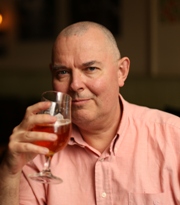
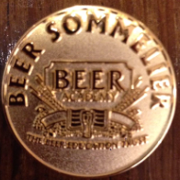
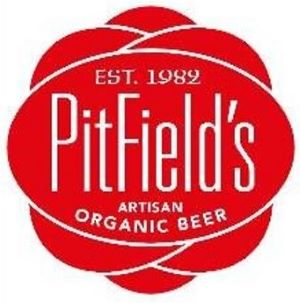
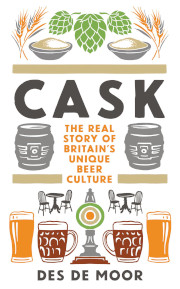
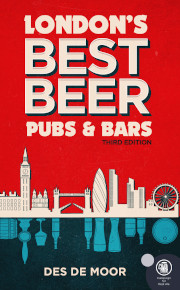
Leave a Reply